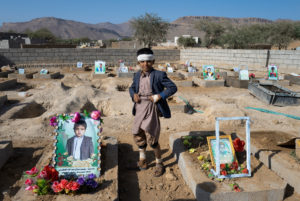I make skeleton dolls, reminiscent of the Mexican Dia de los Muertos figures. I make many kinds of dolls, but the skeletons are perhaps my favorites. Some people think they are morbid.
But, no, they are not morbid.
One of the Five Remembrances of Buddha is I am of the nature to die. There is no way to escape death.
https://www.thoughtco.com/the-five-remembrances-449551
Meditating on death is an essential part of Buddhist practice and can bring great peace. Just as having a near-death event makes the survivor more aware of and appreciative of life, awareness of death
Jane Kenyon’s awareness of death gave us the poem “Otherwise,” which reveals an appreciation of life.
Otherwise
I got out of bed on two strong legs. It might have been otherwise. I ate cereal, sweet milk, ripe, flawless peach. It might have been otherwise. I took the dog uphill to the birch wood. All morning I did the work I love. At noon I lay down with my mate. It might have been otherwise. We ate dinner together at a table with silver candlesticks. It might have been otherwise. I slept in a bed in a room with paintings on the walls, and planned another day just like this day. But one day, I know, it will be otherwise.
I more or less accidentally created an ofrenda on my bookshelf, leaving the funeral pamphlets of friends when I returned from a memorial service. Gradually I added photographs, candles, and small things that reminded me of each of them.
In many cultures the cemetery is central to commemorating lost loved ones.
My Grandma Bell lost two sons in traffic accidents. This was before my time, but my mother told me that her mother walked to the cemetery every day, a distance of some miles.
My cousin Joan also died in a car wreck, in her freshman year at Western State College of Colorado in Gunnison. She was buried in Grand Junction. When her parents, my Uncle Jim and Aunt Gladys, died, they were buried beside her. My Grandma Gage walked to the cemetery often. I remember going with her on that long walk, carrying mayonnaise jars and modest flowers from her garden. She would point out to me the adjacent plot. “I will be here,” she said. And she is.
Our American funeral practices have changed in recent decades. Families are now often far-flung from the homestead. Increasingly, we cremate rather than bury our dead. It’s a decidedly more economical option. When my mother died, my sister and I had her body cremated. When my sister died, I had her cremated too. My daughter laments that there is no place to go to to remember them.
Mom died 26 six years ago, and Loretta died six years ago. Their so-called cremains are in my closet. I don’t know what to do with them.

Qasim Shuwe, who was on a school bus hit by a Saudi bomb in a Yemeni village in August, standing among the graves of 44 classmates killed in the airstrike.
We commemorate the dead
